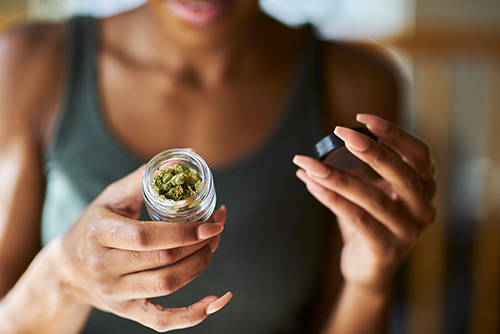Your friends said that pot wasn’t addictive. However, they were wrong. When you find yourself wondering how to stop smoking weed, you know you’re struggling with drug dependency. Rehab offers a solution.
THC Addiction Creates a Powerful Habit
Smoking marijuana is a form of self-medication for some. It relaxes them and helps counteract social anxiety. For others, it’s fun. They like the altered state of mind that they experience.
However, there’s come a tipping point. One day, you wake up with an intense craving for a joint. If you decide to go without it, thoughts of getting high consume your attention. Some people report withdrawal symptoms, such as anxiety and depression.
Others struggle with agitation that prevents them from resting. At our marijuana addiction treatment center in Worcester, Massachusetts, therapists routinely deal with people who can’t find their groove. They don’t know how to go through a day without smoking weed.
How to Stop Smoking Weed
People who don’t understand addiction might say that learning how to stop smoking marijuana is as simple as saying no. That’s not the case. Because of the physical and psychological withdrawal symptoms, you’re likely to relapse. For many, the resolve to quit doesn’t last two days.
That’s why rehab is an essential aspect of finding new ways of how to stop smoking weed. Therapists help you find out why you use the drug in the first place. You recognize that it scratches an itch. Next, you find ways of working around it.
That’s why therapists put together a care protocol that suits your needs. Examples of therapies include:
- Behavioral counseling that assists you with developing positive coping mechanisms for stressors and triggers
- Addiction education that focuses on how to stop smoking marijuana
- Group therapy as a tool for peer accountability and support
- Dual diagnosis treatment, which focuses on underlying mental health concerns such as anxiety or depression
- Relapse prevention training that also includes life skills training to set social boundaries
What Comes after Rehab?
Once you graduate from the program, extended sober living arrangements can be your best option. If you don’t have a safe home to return to, it protects against early relapse. Because sober living facilities have strict rules, you and your roommates protect one another. Peer accountability gives you the support you need to keep going.
Other rehab graduates return home. There, loved ones commit to supporting their decisions to quit using pot. This means that nobody in the household uses it. Besides that, loved ones help you stay strong when you contemplate relapsing.
Support group meetings are excellent opportunities to talk to others who understand the inside of addiction. There are meetings near your home. You attend them once or twice a week. Frequently, you receive a sober sponsor who becomes your go-to person if you deal with intense cravings.
How to Sign up for Rehab
Connect with therapists at Washburn House, which helps good people just as you quit using drugs. Learning how to stop smoking weed doesn’t have to seem as though it’s an impossible objective. When you talk to an intake specialist, they can begin to create a personalized treatment plan. Call 855.298.3104 right now while you’re thinking about it.

